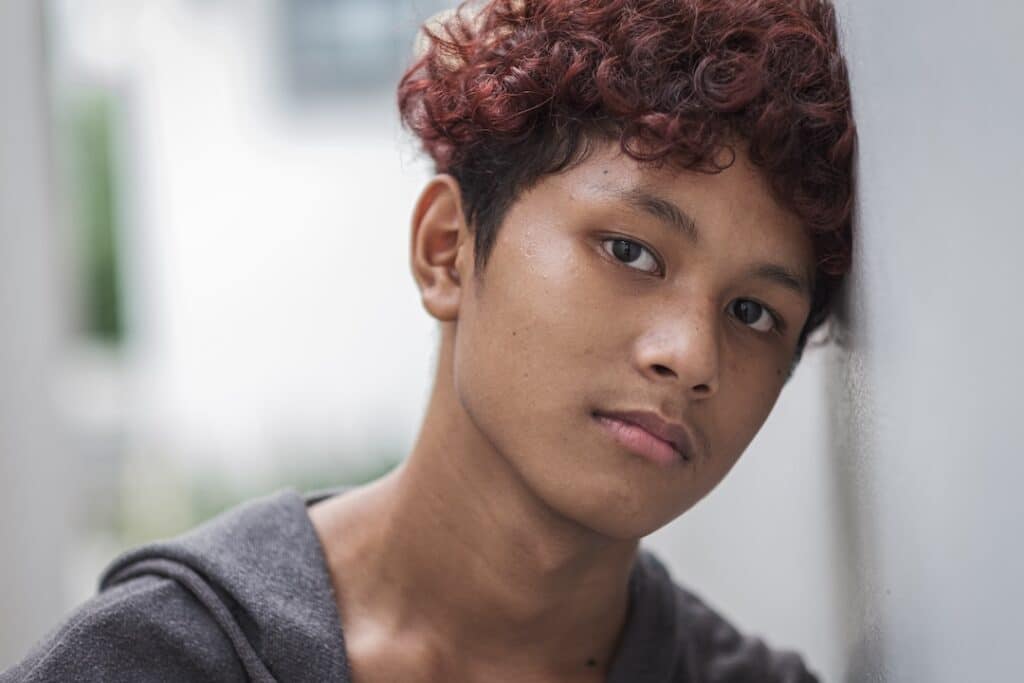When you think of ADHD, do you normally think of anger? Likely not. The stereotypical image of ADHD in teens is an inability to focus, restlessness, and hyperactivity. While those are all real and important aspects of the disorder, there is an undeniable emotional component. Anger is part of that.
13% of teens in the United States have ADHD. That is around 3.3 million adolescents. Many of them live with more anger than their peers without people knowing their ADHD is a contributing factor. They aren’t angry, bad kids – they have a treatable condition interfering with their lives. BNI Treatment Centers works with teens ages 12-17 with ADHD and other mental health conditions so they can live their lives to the fullest.
Teens experiencing ADHD and anger are easily misunderstood. Let’s take steps to better understand them today.
The Lesser-Known Link Between ADHD and Anger
ADHD and anger have a close relationship. Anger and ADHD are so closely linked that in the past, anger was a symptom taken into consideration for diagnosing the condition. The largest reason for this is the emotional dysregulation that comes with ADHD. Impulse control, medication side effects, and the excess energy of those with ADHD should also be taken into account.
Emotional Dysregulation
ADHD is, at its core, a condition of dysregulation. People with ADHD have trouble regulating attention, thoughts, actions, and emotions.
About 70% of adults with ADHD report experiencing emotional dysregulation. This number is even higher in adolescents and children. Emotional dysregulation is when someone has trouble managing their emotions. Emotional dysregulation is made up of five components:
- Irritability. This is the “anger” component. It can include outbursts of anger, tantrums, and yelling, and is often an extreme reaction to an event.
- Lability. This consists of frequent mood swings during the day.
- Recognition. This is the tendency of those with ADHD to have difficulty recognizing other people’s feelings.
- Affective intensity. These are the extreme emotions that those with ADHD often feel.
- Emotional dysregulation. This is a general difficulty in appropriately adapting emotional reactions to each situation.
Emotional dysregulation is a concern for many teens. They often feel overwhelmed and lash out due to what may seem minor to anyone else. A teen experiencing this doesn’t mean they have ADHD. Emotional dysregulation is a symptom of many mental health conditions. Sometimes, emotional dysregulation is just a teen being overwhelmed as they grow into adulthood. ADHD comes with symptoms of inattention as well, despite anger and regulating emotions being a key component.
Impulse Control
Interrupting conversations, letting themselves get distracted, spending excess money, and self-destructive behavior are symptoms of ADHD we’re familiar with. Part of that lack of impulse control includes anger.
People with ADHD have lower impulse control due in part to dopamine and serotonin being off-balance in their brains. Dopamine is a motivational, excitatory neurotransmitter, while serotonin is a relaxed, content one. People whose brains work as they should have a good enough balance of dopamine and serotonin to feel motivated to do things, and feel satisfied once those tasks are complete.
It’s suspected that people with ADHD have a low level of both dopamine and serotonin receptors. Serotonin typically counteracts high dopamine levels to calm someone down, but that excitement continues with more dopamine in the system. Some research suggests that sometimes, individuals with ADHD produce a large surge of dopamine. These are the moments when people with ADHD are at their most impulsive.
That impulsivity combined with emotional dysregulation can cause angry outbursts that seem disproportionate to the situation. Those with ADHD feel intense anger and also have trouble controlling it.
Medication Side Effects
Stimulant medications improve anger in some with ADHD, but increased irritability can also be a side effect. These side effects usually go away within a couple of weeks of taking the medication, but sometimes they don’t. Medications and their side effects impact everyone differently. Stimulants have also not proven consistently effective in treating anger. One study showed that adding SSRIs to ADHD treatment helped with anger in some adolescents.
Excess Energy
The excess energy that comes with ADHD is a double-edged sword. On one hand, people with ADHD always seem to be on the go. Hyperactivity is one of the symptoms most associated with the condition. They have so much energy that it’s hard for them to focus, sleep, and sit still.
However, trying to manage that energy, and function despite it, can be exhausting. Those with ADHD have to work hard to do what neurotypical people can accomplish with little effort.
Whether someone with ADHD has high energy or is exhausted, irritability and anger can surface. An angry teen with ADHD may have so much energy that they grow frustrated and don’t know how else to express it. They may also be so drained from trying to rein themselves in that everything irritates them.

What Can Trigger Anger in People with ADHD?
Many things can trigger anger in a person with ADHD, and what makes people angry varies. People with ADHD can be more prone to stress-related anger than neurotypical people. They also sometimes grow frustrated with their inability to focus and be productive. These individuals also tend to be sensitive to rejection.
People with ADHD often get angry in pursuit of their goals. It’s hard for people with ADHD to think about the future and goals in general. Running into an obstacle can be incredibly frustrating. Due to the emotional dysregulation of those with ADHD, that frustration can turn into excessive anger.
In addition, anything that angers the average person could anger someone with ADHD too. Their reaction may end up more intense.
Managing Anger with ADHD: Positive Habits and Therapies to Help
Anger can be especially difficult for teens with ADHD to manage. Here are some things that may help:
- Exercise
- Setting boundaries
- Structure and routine
- Support groups
- Adequate sleep
- Calming hobbies
- Medication
- Therapy
Seeking treatment is the most effective way to manage anger in teens with ADHD. Multiple therapy options can target anger specifically.
Self-Regulation Training
Self-regulation involves an individual understanding and managing their behaviors, emotions, and reactions. Self-regulation enables self-control. Both of these things are challenging for teens with ADHD, and require active practice and training. Here are some things teens can do to improve their self-regulation:
- Focus on being a good role model and sticking to their morals
- Identify triggers
- Consider the consequences of impulsive behavior
- Remove themselves from situations that make them angry
- Stay open-minded in the face of change
- Reframe negative thoughts
Most therapy modalities incorporate self-regulation and are a huge asset to teens with ADHD.
Cognitive Behavioral Therapy
Cognitive behavioral therapy (CBT) focuses on recognizing thought patterns and disrupting negative ones. One of the first steps in CBT is to recognize what triggers anger. After teens with ADHD-induced anger recognize this, they can proceed to strategies to deal with the anger. Some of those strategies include:
- Deep breathing
- Recording negative thoughts and triggers to restructure them
- Problem-solving
- Behavioral rehearsal in hypothetical anger-inducing situations
- Assertive communication
While CBT is made up of the same core components, it will be different for each person and the anger they experience.
CBT is proven effective for anger and other mental health concerns. One meta-analysis found those in CBT were better off than 76% of individuals outside of CBT. CBT can help with ADHD-related anger and address other challenges that come with ADHD simultaneously.
Mindfulness Meditation
Mindfulness is being present in the moment and taking notice of what we’re experiencing without being overwhelmed by what is happening around us.
Practicing meditation and mindfulness simultaneously makes this easier for those with ADHD. Mindfulness meditation requires a peaceful space. Anyone’s thoughts can easily wander during this time. Someone with ADHD may start thinking about what they want to eat for lunch, but mindfulness meditation requires letting those distracted thoughts pass and returning to the present, no matter how many times the person has to refocus.
Mindfulness meditation is valuable because it trains anyone practicing it to notice their wandering thoughts and refocus on the moment, even outside of meditation sessions. Someone with ADHD can use what they learn to become aware of their own emotions, and react less intensely to situations that would usually anger them.

ADHD Treatment for Teens in Los Angeles
Teens live busy lives. They all face challenges, but teens with ADHD experience additional difficulties in addition to growing into adulthood. It isn’t fair to expect teens to learn all of these practices and apply them themselves. Sometimes, even loved ones helping isn’t enough. If you know a teen with ADHD whose anger is out of control, it may be time to seek ADHD treatment.
BNI Treatment Centers is a mental health treatment facility for teens ages 12-17, located in the Los Angeles area. We are doctor-owned and operated, with psychiatrists intimately involved in our clients’ treatment plans. They can diagnose conditions and manage medications as soon as it’s needed. For more on our services, call us at (888) 522-1504.
BNI Treatment Centers: Science-based, evidence-backed, compassion-led.
FAQs
What does an ADHD meltdown look like?
ADHD meltdowns usually consist of crying and angry outbursts, resembling a tantrum. Sometimes, they involve self-harm.
What medication is used for ADHD rage?
Stimulants are frequently prescribed for ADHD, but they don’t always treat the anger associated with the condition. Adding an SSRI may be more effective, but more research is needed.



